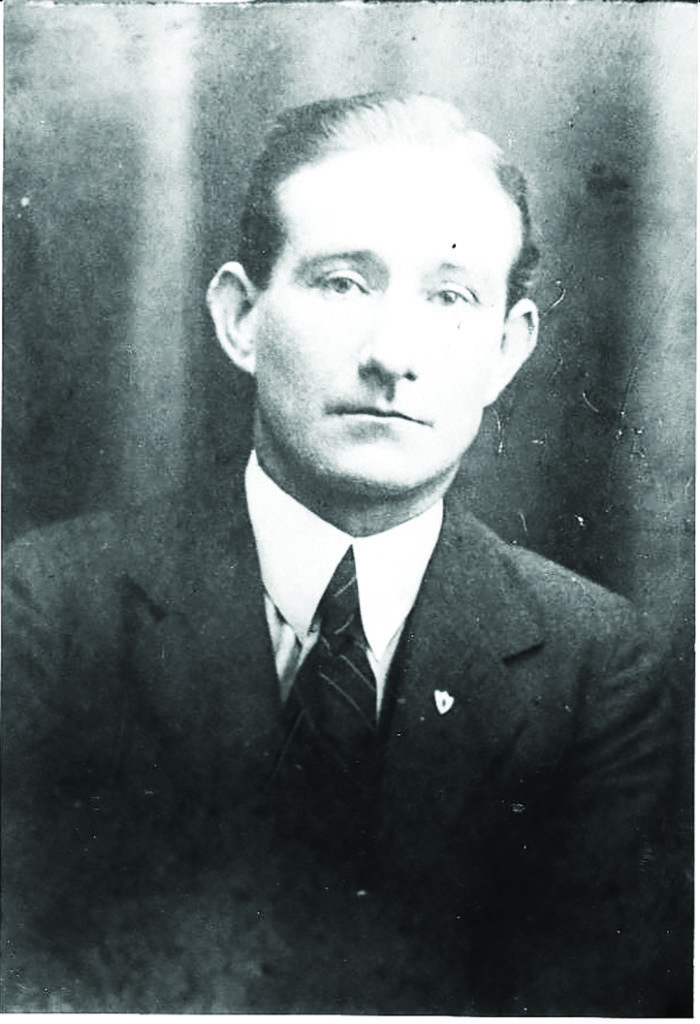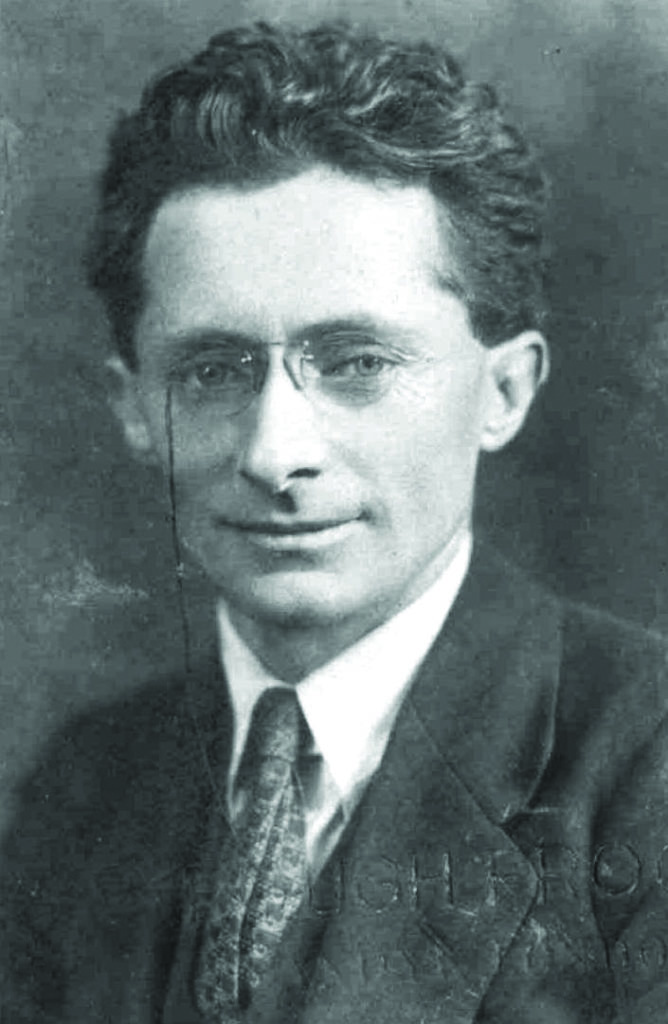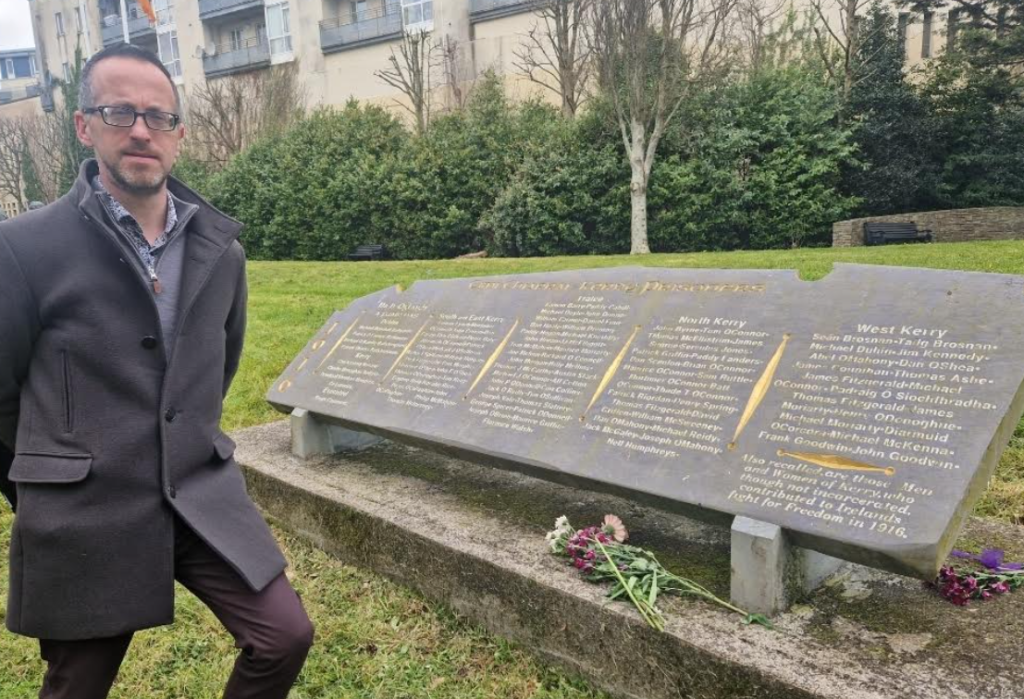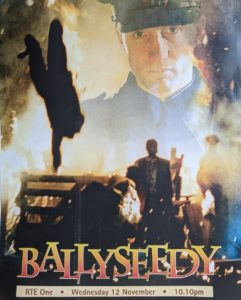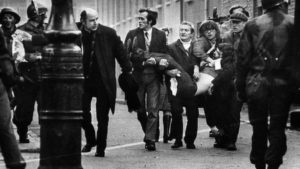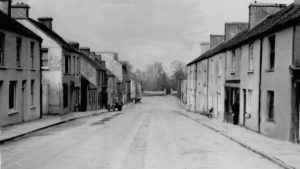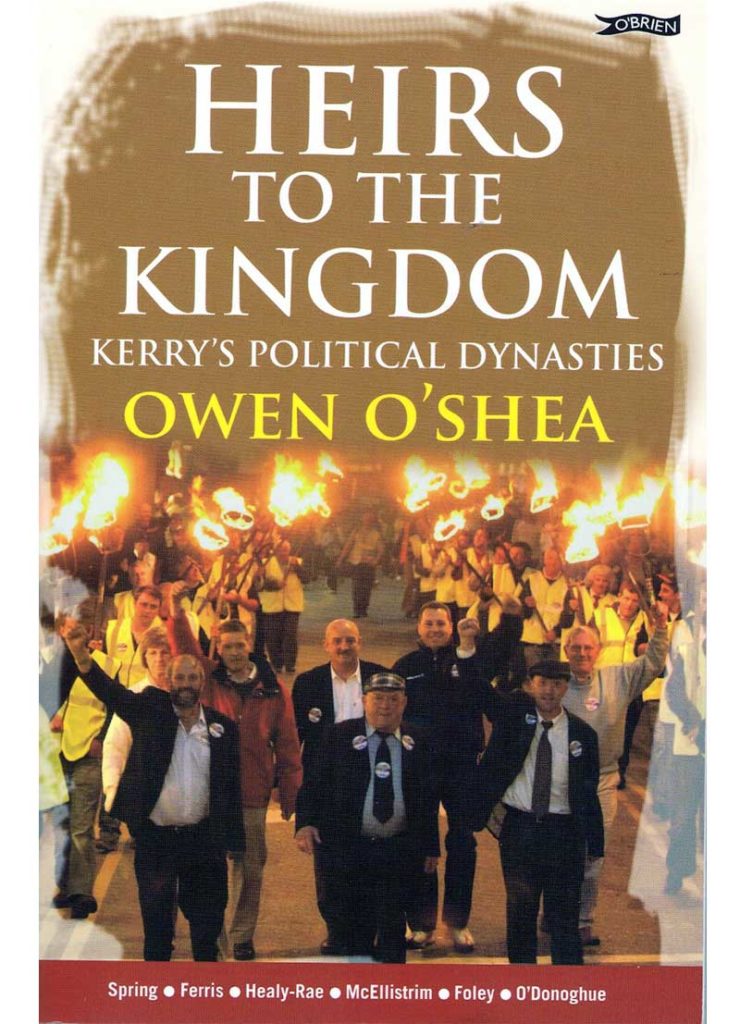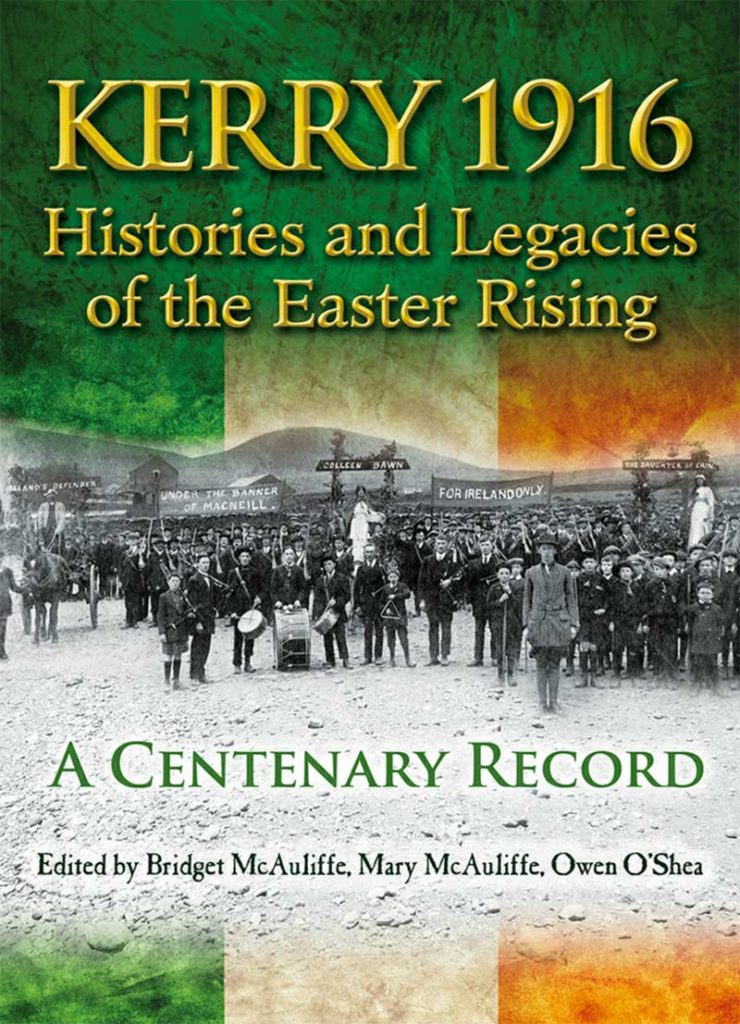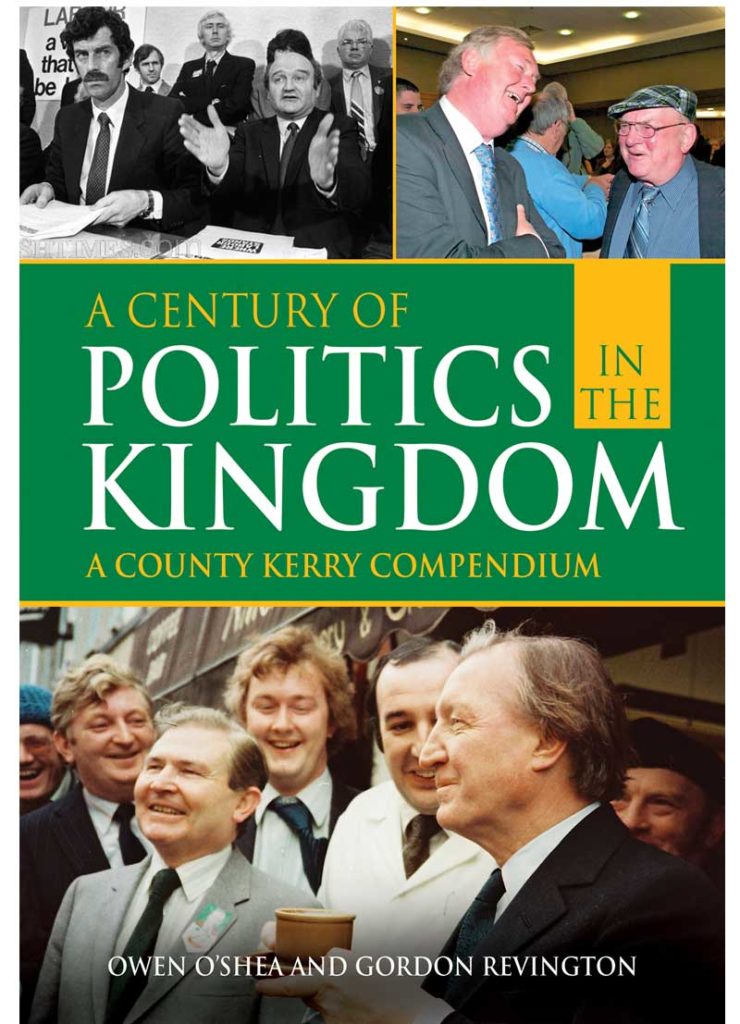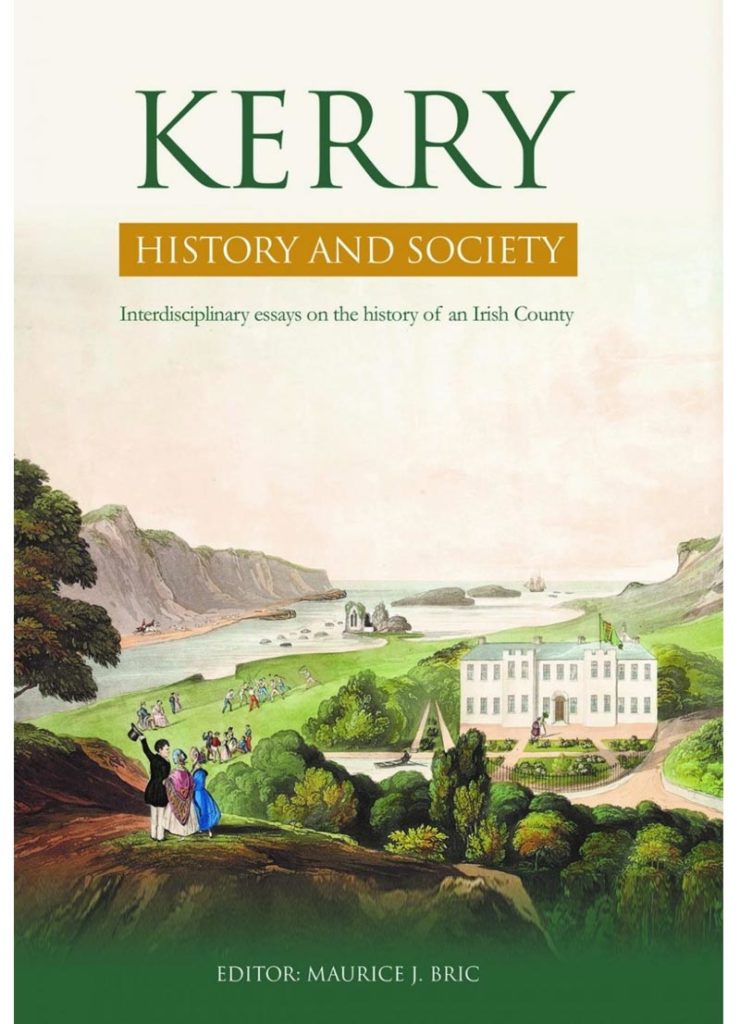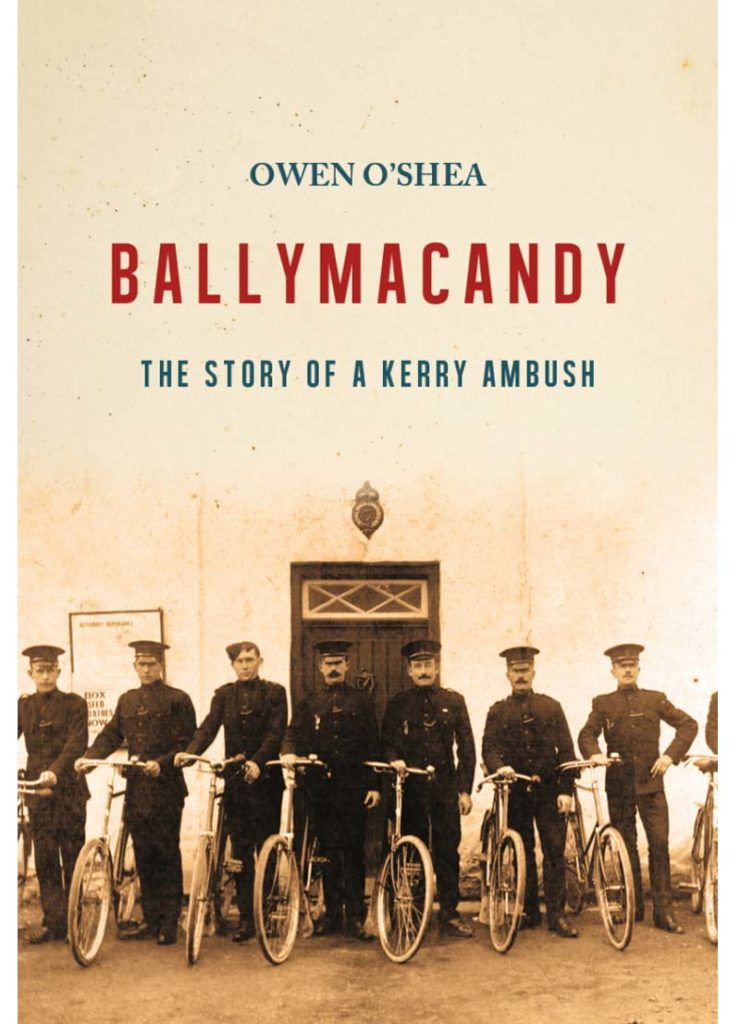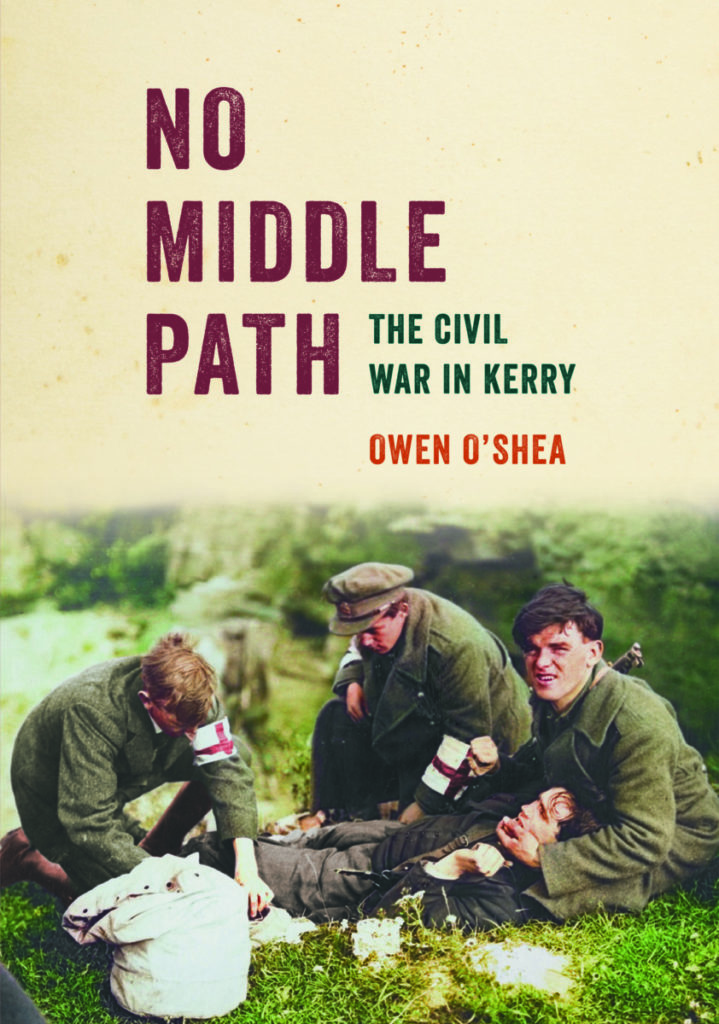Oration by Owen O’Shea at the Tralee Municipal District Easter Rising Commemoration in Páirc an Phiarsaigh, Trá Lí on Easter Sunday, 2024
Though 108 years have now passed since the Easter Rising of 1916, it remains no less significant a moment and continues to be of enormous historical importance. Today, across Ireland, annual commemorations of this seminal event in our collective history are taking place, and it is wonderful to see the Tralee Municipal District and the local elected members continue this tradition here in Pearse Park every Easter.
To appreciate the present and to prepare for the future, we must continue to honour and commemorate the past. That is why gatherings such as this one today are so important. They ensure that the memory of those involved in one of the most important episodes of Irish history is retained and held for the next generation.
When I talk about or write about history, I try to place or situate various events in locations and places which are tangible and easily identifiable for people today. History is so much about a sense of place, a sense of one’s surroundings, the sites, the buildings, the streets, the homes where events occurred. So, I would invite you to ponder for a moment what it was like here in Tralee on Easter Sunday in 1916.
The town is in a state of expectation, excitement, and confusion. A short distance from here, at the Rink, Volunteers and members of Cumann na mBan are assembled and units all over Kerry are beginning to mobilise in anticipation of orders from headquarters. Dozens of men have walked from Dingle and west Kerry to the Rink and have assembled with the men and women there, having answered the call to arms. Men and women are gathering supplies, checking weapons, preparing their uniforms.
Roger Casement arrived two days ago at Banna Strand in a failed attempt to import weapons and ammunition for the rebellion. Word spreads that Casement has been arrested and has been taken to the Tralee RIC barracks. His travelling companions, Robert Monteith and Daniel Bailey have evaded capture, and Monteith has been taken into the care of the Volunteers in Ballymacelligott, early yesterday morning, under the command and protection of Tom McEllistrim.
Over the following 24 hours, key local leaders like Austin Stack and Paddy Cahill are arrested, Stack surrendering himself into custody. Word has arrived in Tralee that late on Good Friday, three men drowned at Ballykissane Pier, the first deaths associated with the rebellion.
Overnight last night, local Volunteer, Billy Mullins from Moyderwell, travelled to Dublin to tell the rebel leaders that the landing of guns at Fenit had failed. Mullins meets Pearse and others in Dublin but despite the warnings, plans for the rising remain in effect.
Even as Eoin MacNeill calls off the assembly of Volunteers scheduled for Easter Sunday, the Kerryman carries the order for Volunteers to engage in “full manouevres.” At about 11am on Easter Sunday however, the countermanding order finally arrives in Tralee and the following day, just as the rebellion gets underway in Dublin, the assembled Volunteers in Tralee and other parts of the county are told to stand down. Confusion reigns.
Thankfully, many of the men and women of Tralee who took part in these dramatic events left behind first hand accounts of what took place. As just one example, take this description of what happened in Tralee on Easter Monday and subsequent days from Peter Browne from Ballymullen, a member of the Volunteers. He said (and I quote):
Easter Monday was quiet in Tralee. In the afternoon, rumours of fighting filtered through. The Volunteers were mobilised on Monday night and it looked as if Kerry Volunteers were going into action … The Rink was full of Volunteers at all times, and wild rumours were afloat about Dublin and other places.
Peter Browne, Witness Statement, Bureau of Military History
The importance of what happened in Tralee and the connections which Kerry has with the Rising are hugely significant and should never be overlooked. Leaders like Pearse and Connolly visited Tralee in preparation for the rebellion in 1915 and 1916. Four Kerry men died in combat on the streets of Dublin, among them the O’Rahilly from Ballylongford. Dozens of other men and women from Kerry engaged in the fighting in Dublin as did Thomas Ashe, who led the so-called Battle of Ashbourne in County Meath. Key Kerry figures like Fionnán Lynch, JJ McElligott, The O’Rahilly, and Austin Stack are synonymous with the events of 1916.
But today, and briefly, I wanted to mention some of the lesser-known men and women from this town who risked life and limb in the name of the Irish Republic 108 years ago. Many of the very ordinary men and women who declared themselves ready to fight for the Irish Republic are often forgotten. They should be remembered today too.
What of Eamon Barry of Gas Terrace and later a member of Tralee Urban District Council, who was arrested who was held in Mountjoy after the Rising and who was force fed with others including Thomas Ashe.
Or Anna Barton of Clogherbrien, who as a member of Cumann na mBan in Dublin, and mobilized at Blackhall Place in the city on Easter Monday alongside her future husband, Frank Fahy.
Or Michael Doyle from Upper Rock Street who fought in the Boer War before joining the Volunteers in his native Tralee and who met Pearse when he came to Tralee months before the Rising.
Or how about Dan Healy from Spa Road who worked in Kelliher’s Coal Yard and who briefly took control of the Tralee Volunteers following the arrest of Cahill and Stack.
And Michael Knightly of Ballyard, who went to the GPO on Easter Monday to fight alongside The O’Rahilly and fellow Tralee man, JJ McElligott and who Pearse instructed to fill milk churns with water in anticipation of the GPO going up in flames.
And Mossy Moriarty from Rock Street who drove Austin Stack to Banna on Good Friday and who was taken to London to give evidence in the trial of Roger Casement.
Or Lizanne O’Brien from Tralee who represented the Kerry Cumann na mBan at their national convention in Dublin in October 1915 and who, in 1923, would be involved in the cleaning of the bodies of those who were blown up at Ballyseedy.
And George Spicer of Dominick Street at whose grocery shop Monteith and Bailey arrived on Good Friday and who arrested and held at Richmond Barracks in Dublin.
Ordinary men and women, who until then, led ordinary lives, but who, are so much part of the story of Tralee in 1916 and who should be remembered and never forgotten for their role in these tumultuous events.
The man after whom this park is named had a close connection with Tralee and County Kerry for many years. Pearse came to Tralee on 27 February 1916, weeks before the rebellion, and he briefed Austin Stack about plans for the Rising. Like other leaders, Pearse recognised that Kerry would play a leading role in the rebellion, not least through the potential importation of guns. It is fitting therefore that Tralee is home to this beautiful park in his name and that visitors here can be continually reminded of the man who occupies such an important place in Irish history.

Finally, a word about the Proclamation of 1916 which has just been read. For me as a historian, it remains one of the most powerful, evocative and moving documents which form part of the story of Ireland. It is a document which is on the walls of schools and homes across Ireland, including my own, and which I often read to remind myself of the power of its message.
I would urge everyone to read the Proclamation now and again to be reminded of what it set it out to achieve and how much its message remains relevant today. For me, the most important passage is, and I quote:
The Republic guarantees religious and civil liberty, equal rights and equal opportunities to all its citizens, and declares its resolve to pursue the happiness and prosperity of the whole nation and of all its parts, cherishing all the children of the nation equally …
Historians will continue to debate whether today’s politicians and the current generation have lived up to those ideals and that is a discussion for elsewhere. By coincidence, today, Ireland celebrates the 75th anniversary of becoming a Republic. On Easter Sunday, 1949, there were celebrations in Dublin and across the country as the Republic of Ireland Act came into effect. There was, of course, a huge symbolism in ushering in the new republic on the same weekend on which it was first declared in 1916.
Today however, our task remains to honour, acknowledge and remember the ordinary men and women from Tralee and beyond who set in train a series of dramatic events in 1916 which led to the freedom and independence which we enjoy – and perhaps, often take for granted – nowadays.
In a world in which so many people live without the right to vote, where so many are denied democratic norms, civil rights and freedoms, and a world in which so many live under the violence of colonialism, oppression and genocidal war, the freedom and independence which Irish people enjoy today, which was so evocatively espoused at Easter in 1916, should be treasured and appreciated more than ever.
So perhaps the greatest tribute we can pay to Pearse as well as the men and women of Tralee who played their parts in the events of 1916 is to continue to value, appreciate and treasure the political freedoms which we enjoy today, freedoms which are under increasing threat across the world.
May the memory of those who were moved to fight to achieve the Irish Republic in 1916 and subsequent years be remembered on this Easter Day, today and forever more.
Ar Dheis Dé go raibh a h-anamnacha Dílis.
For more on Kerry’s role in the events of 1916: Kerry 1916: Histories and Legacies of the Easter Rising – A Centenary Record – Owen O’Shea (owenoshea.ie)


